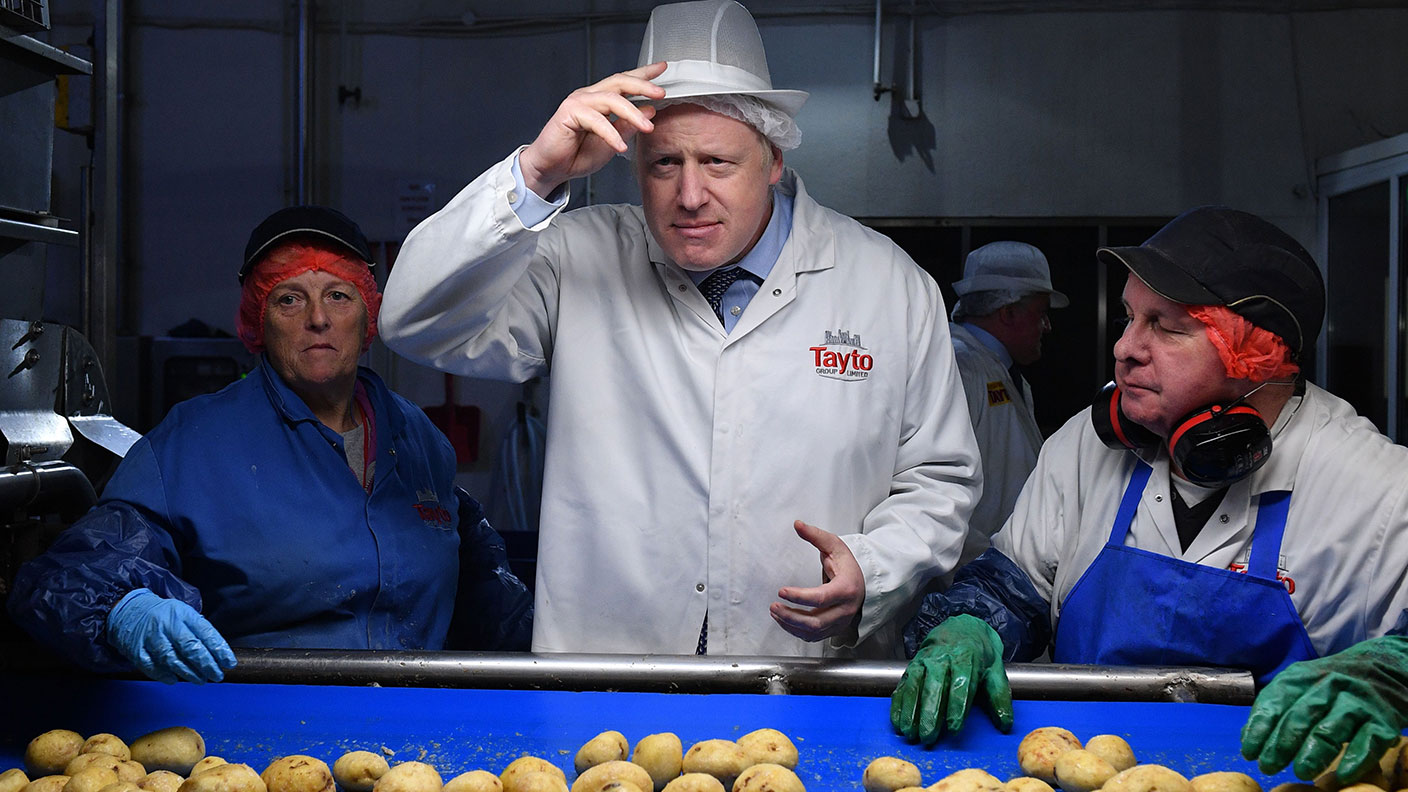The Boris Bounce might stop the Bank of England from cutting rates
The latest snapshot of UK economic activity has sparked a bout of inflationary talk, with both manufacturing and service sectors in ruder health than anticipated. That might have an effect on interest rates, says John Stepek.


Get the latest financial news, insights and expert analysis from our award-winning MoneyWeek team, to help you understand what really matters when it comes to your finances.
You are now subscribed
Your newsletter sign-up was successful
Want to add more newsletters?
This morning we got the most up-to-date snapshot of economic activity in the UK. And in terms of the economy at least, the news was good. The monthly PMI (purchasing manager index) surveys from IHS Markit take the temperature of private sector businesses in both the manufacturing and services industries. The company does this for most major countries, and markets view the surveys as pretty reliable early indicators of how official economic data will pan out.
This batch was particularly eagerly awaited as it’s the first available economic data to give us a decent idea of just how much of a difference the lifting of the uncertainty of the election has made to businesses across the UK. And the answer is that it’s definitely helped.
In January, activity in both the manufacturing and services sectors is healthier than markets had expected. Activity in manufacturing – in common with the rest of the world – is still peaky, and shrinking slightly (although new orders are growing again). But activity in services picked up strongly.
Try 6 free issues of MoneyWeek today
Get unparalleled financial insight, analysis and expert opinion you can profit from.

Sign up to Money Morning
Don't miss the latest investment and personal finances news, market analysis, plus money-saving tips with our free twice-daily newsletter
Don't miss the latest investment and personal finances news, market analysis, plus money-saving tips with our free twice-daily newsletter
The outlook improved too. As Paul Dales at Capital Economics points out, demand has perked up so markedly that some companies are even talking about having “greater scope to pass on higher operating costs”. That’s inflationary talk of a nature that we haven’t seen in a long time (indeed, since well before the 2016 vote to leave the EU).
So what does it mean for investors? It does make it a lot harder – though not impossible – for the Bank of England to justify a cut in interest rates next Thursday when the Monetary Policy Committee announces its latest decision. Markets tend to like rate cuts.
However at this point, they’ll probably be happier that we aren’t facing imminent recession. Also, clearly more activity is good for corporate profits, which should be good for share prices, all else being equal. Meanwhile, it also implies a healthier outlook for the pound than would otherwise have been the case.
Get the latest financial news, insights and expert analysis from our award-winning MoneyWeek team, to help you understand what really matters when it comes to your finances.

-
 Financial education: how to teach children about money
Financial education: how to teach children about moneyFinancial education was added to the national curriculum more than a decade ago, but it doesn’t seem to have done much good. It’s time to take back control
-
 Investing in Taiwan: profit from the rise of Asia’s Silicon Valley
Investing in Taiwan: profit from the rise of Asia’s Silicon ValleyTaiwan has become a technology manufacturing powerhouse. Smart investors should buy in now, says Matthew Partridge